Florence has been a popular tourist destination not just for decades, but for centuries. The Renaissance jewel is positively packed with world-class attractions, drawing countless visitors from all over the world. It was a required stop on any Grand Tour, and it’s the city where Stendhal syndrome (that overwhelming feeling from almost unbearable beauty) was born.
The trouble is that being so full of bucket list-worthy sights also means the Tuscan capital is generally also full of tourists.
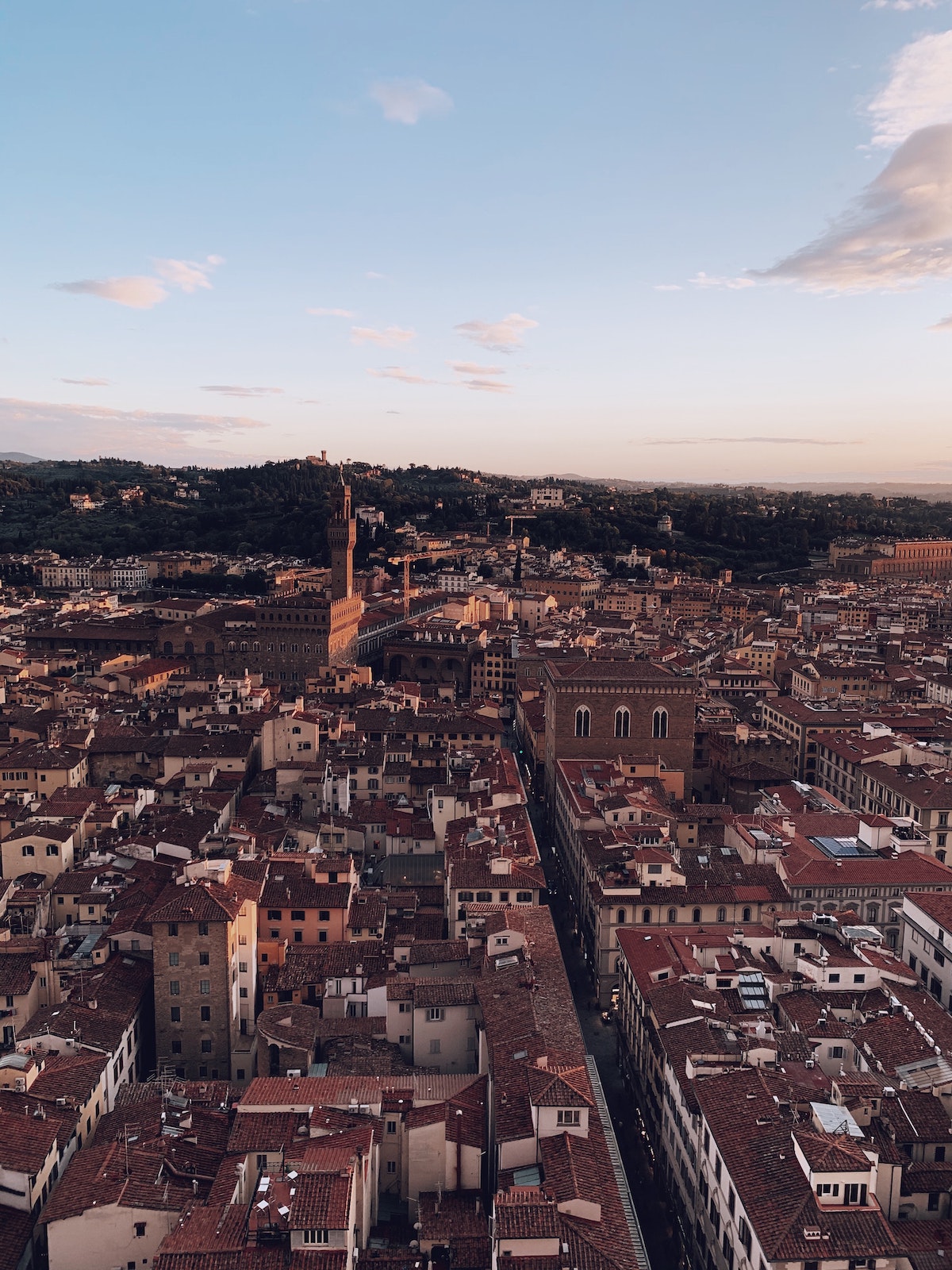
Many of the top attractions are busy year-round, either with foreign visitors or Italian schoolchildren on field trips. You’d be forgiven, then, for assuming that there really isn’t much left to see in Florence that’s off the well-trodden tourist path. And while it would be ridiculous to suggest that any of the sights listed here are “undiscovered,” the good news is that these are more frequently not on the radar of most visitors.
It’s important to note that this list of hidden gems in Florence isn’t even close to exhaustive. Even besides the attractions and experiences included on this list, there are dozens more that are routinely overshadowed by the city’s top sights—especially when travelers only have a few days to explore.
If you can make time to simply wander through a pretty neighborhood without a particular destination in mind, you stand a much better chance of finding an uncrowded church with beautiful artwork, a charming cafe full of local diners, or a peaceful piazza.
Let this list serve as your gateway to even more exploration.
Visit the Duomo’s spectacular museum
Florence’s famous Duomo is by no means hidden, but some visitors don’t realize that the works of art that were once inside the cathedral are now on display in the Museo dell’Opera del Duomo behind the church. It was completely renovated in 2015 and the new layout is full of light, giving each work of art the space it deserves.
Among the treasures you can see in the Duomo’s museum are Ghiberti’s original bronze panels from the Baptistery’s doors (the ones exposed to the elements today are copies), a lesser-known Pieta sculpture by Michelangelo, and a truly stunning wooden sculpture by Donatello called “Penitent Magdalene.”
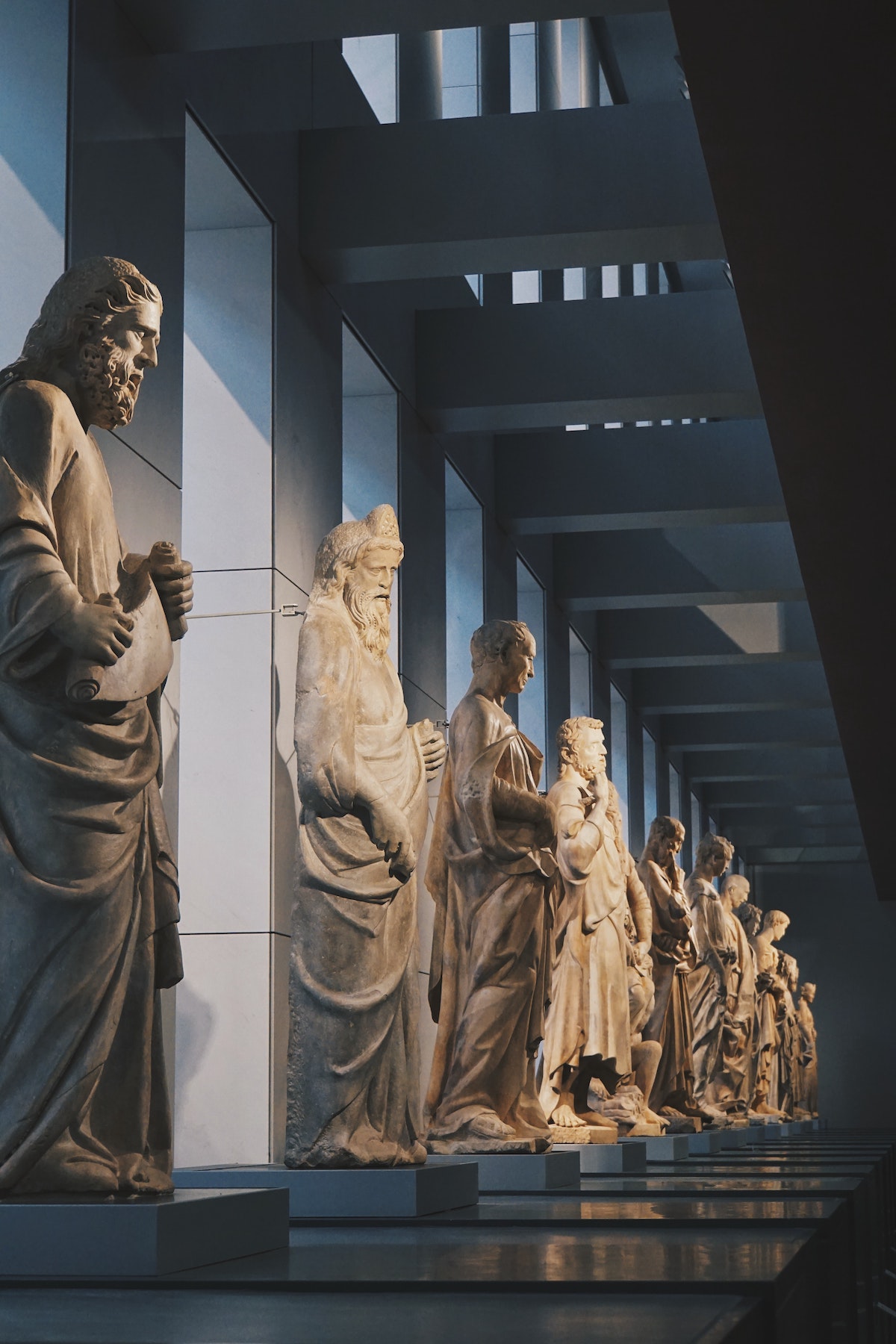
Check Out Florence’s sculpture museum
The Uffizi and Accademia Galleries (rightly) get most of the museum attention in the Tuscan capital, but if you like sculpture you’ll want to make sure the Bargello is also on your list. Housed in a former jail, the Bargello Museum is home to several Michelangelo sculptures, including some of his earliest carvings as well as a woozy-looking Bacchus. There’s also an entire room dedicated to Donatello’s sculptures.
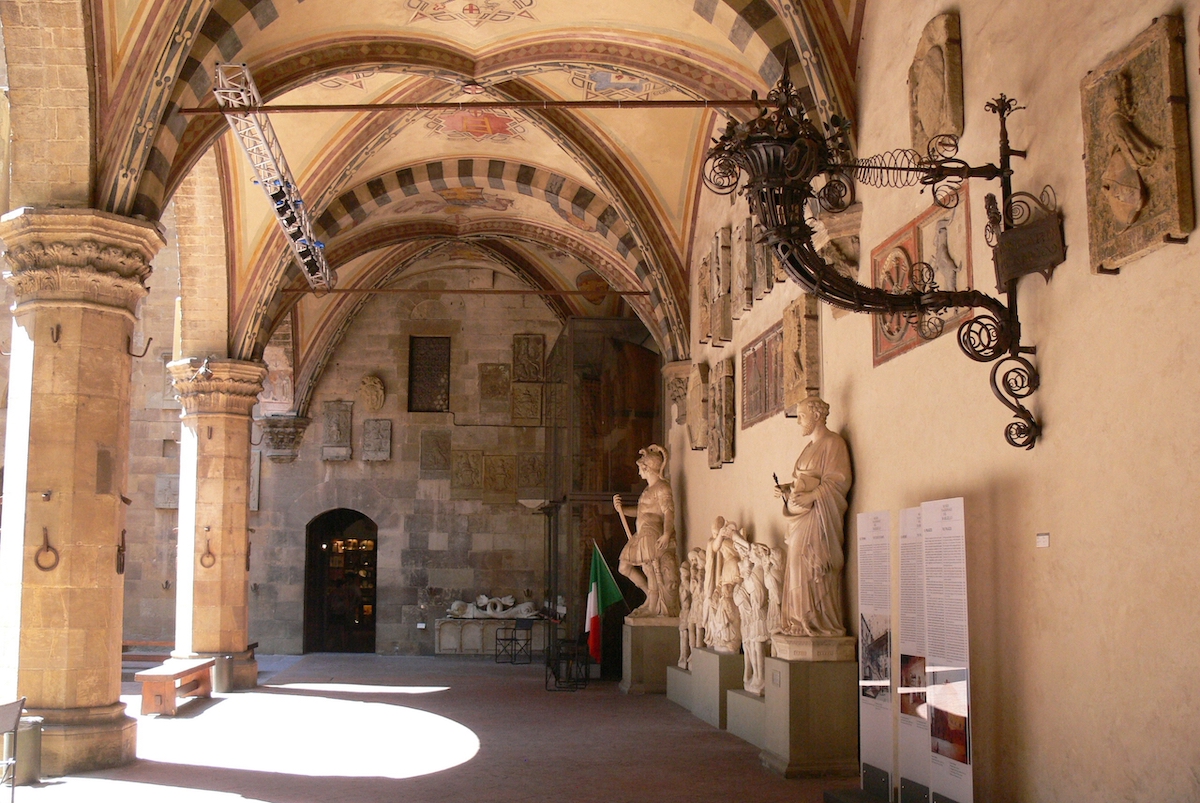
Browse at Santa Maria Novella pharmacy
While you won’t find typical pharmaceuticals for sale in this, the world’s oldest pharmacy in continuous operation, you may still want to put it on your must-see list. The Santa Maria Novella Pharmacy was founded by Dominican friars in 1221. Over the years, the areas of expertise expanded to include not just herbal remedies but also perfumes.
The gorgeous shop is still in its original location, a chapel right next to the church that shares its name. If you’re looking for scented souvenirs (like soap, lotion, perfume, etc.), it’s an excellent place to shop.
Walk in Medici footsteps in the Vasari Corridor
As you walk from the Palazzo Vecchio across the Ponte Vecchio to the Palazzo Pitti, look up. Every now and then, between buildings, you’ll see the most exposed portions of the enclosed walkway the Medici commissioned for an easier commute between home and the office. The walls are lined with works of art, and windows offer occasional glimpses of the city below.
The Vasari Corridor gets its name from the architect who designed it, and it’s usually only accessible via guided tours. (Note: It’s been closed for security reasons since 2016, though it’s set to reopen at some point in 2022.)
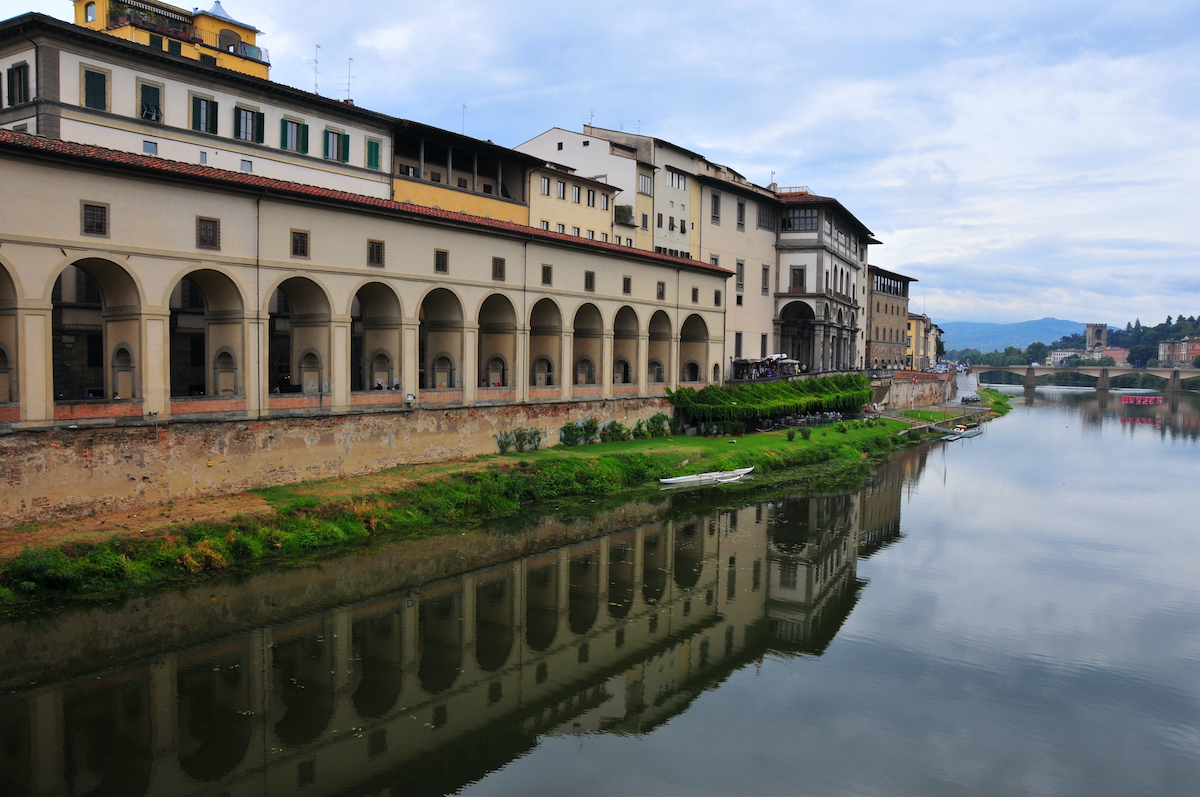
Take in the view from Piazzale Michelangelo
If you’re browsing postcard racks and wondering where that stunning view overlooking Florence is, it’s probably the Piazzale Michelangelo.
The space itself is unremarkable—it’s basically a parking lot, though there’s a bronze replica of Michelangelo’s “David” in the middle of it. But the view is a good enough reason to hang out for a while—especially at sunset. It’s a hike uphill to get there, but there are also local buses that make the journey easier.
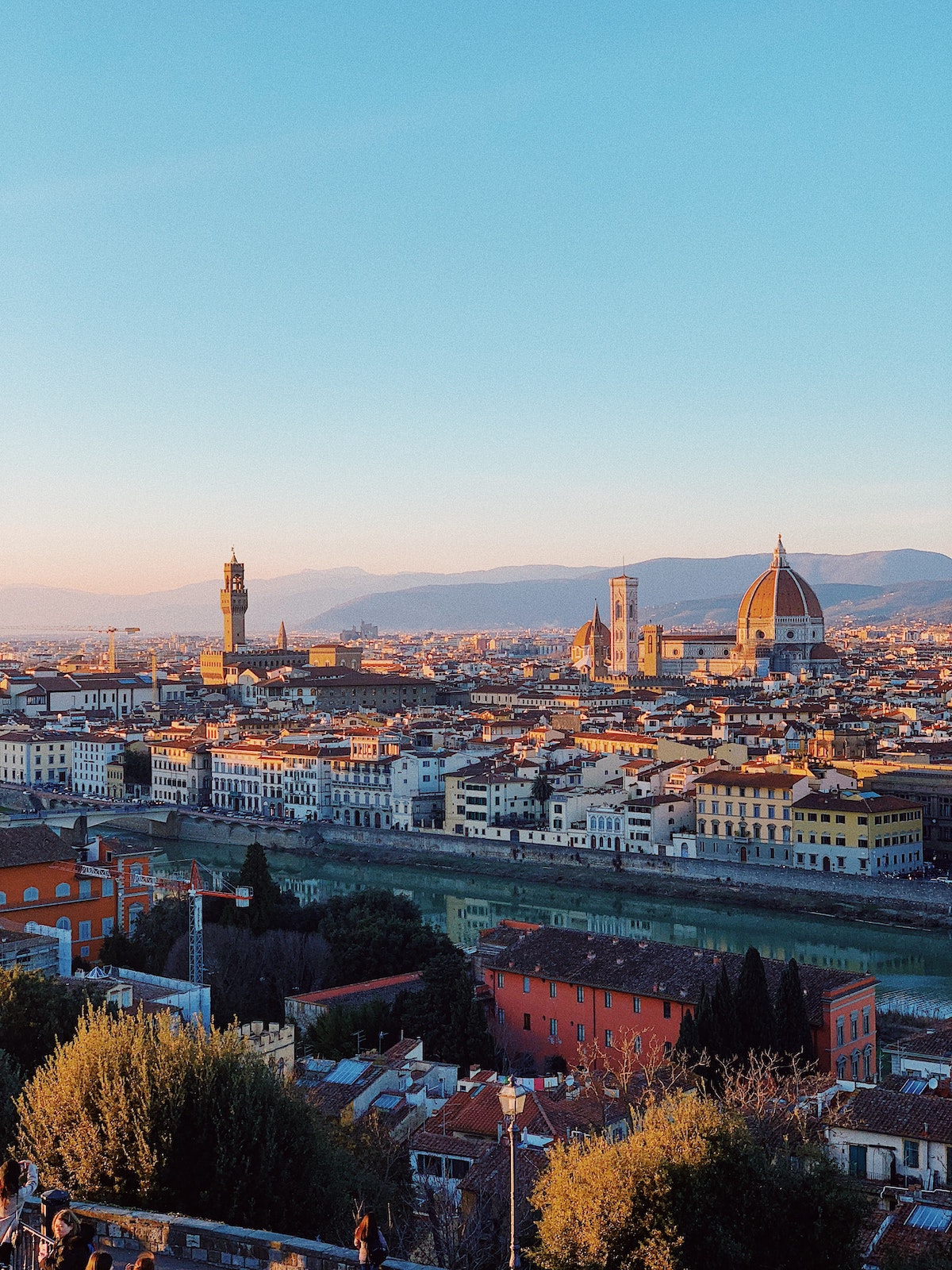
Get an even better view from San Miniato al Monte
Just a bit further uphill from Piazzale Michelangelo is a beautiful church that (largely due to its location) is often overlooked by visitors. The complex at San Miniato al Monte, which dates from the early 11th century CE, includes both the basilica and an abbey encircled by high walls. There’s a glittering mosaic dedicated to Saint Minias (Miniato) inside the church, and other noteworthy sights are the floor’s detailed mosaics and Michelozzo’s Chapel of the Crucifix.
Sample some famous Florentine fare
Cuisine throughout Italy is extremely regional, so when you’re in Florence you’ll want to look for menus that include some regional Tuscan specialties. Besides the famous bistecca, be on the lookout for lampredotto (tripe), ribollita (a hearty soup with white beans, vegetables, and bread), crostini neri (usually chicken liver pate on toasted bread), inzimino (squid or octopus cooked with spinach and lots of red wine), and pappardelle al cinghiale (egg pasta with wild boar ragu).
And take note—Tuscan bread is made without salt, so it may taste best if you use it to sop up delicious sauces from your plate.
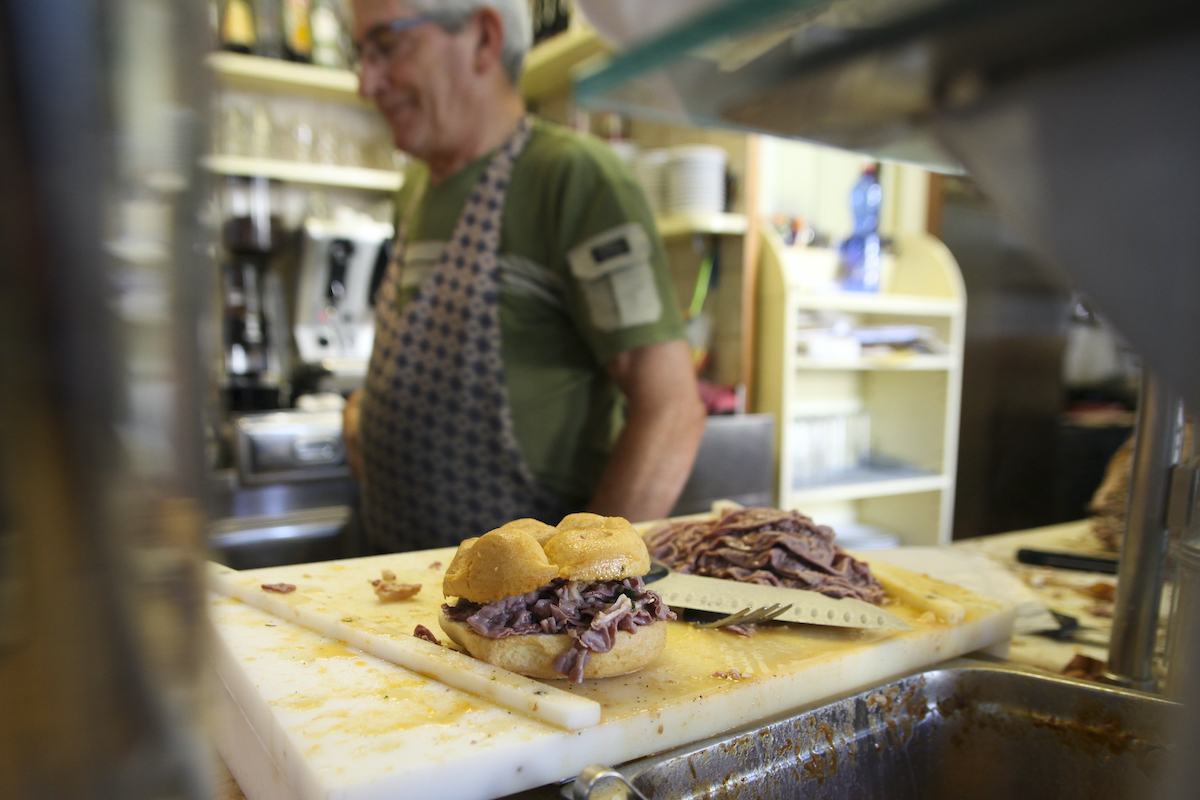
Watch leather artisans at Work
Wander around Florence’s markets and you’ll soon realize that this area is known for its leather products. So, after a visit to the beautiful Basilica di Santa Croce, you might not be terribly surprised to turn a corner in the church and come upon a leather school.
The Scuola del Cuoio (Leather School) has been operating in what was once a dormitory space for the monks of Santa Croce since just after World War II. Back then, it gave young people orphaned by the war a chance to learn a trade. Today, it remains a place to learn the fine art of leatherwork (there are even short workshops visitors can take) and where you can watch the artisans at work.
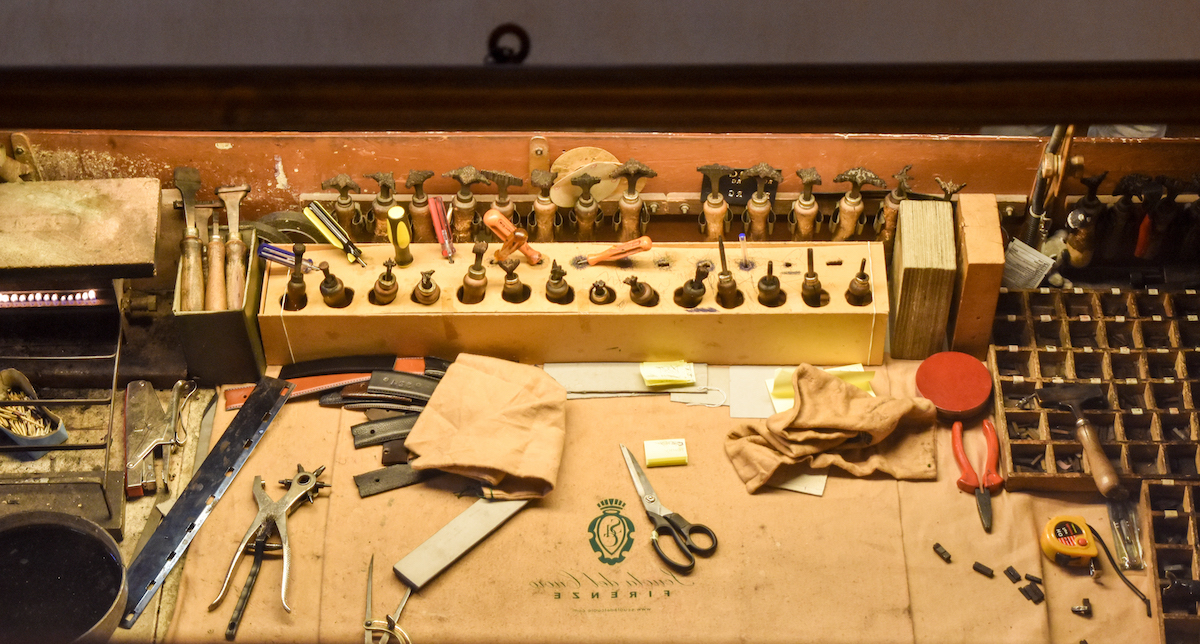
Visit the Laurentian Library
When you visit the Basilica di San Lorenzo, don’t miss a stop in the Laurentian Library. It was commissioned by the Medici family in the early 16th century and designed by Michelangelo.
There’s a long reading room with a decorated high ceiling and rows of wooden benches and, though it’s no longer a library in the traditional sense, the museum’s collection includes thousands of historic manuscripts (many of which were owned by the Medici). Michelangelo’s grand staircase also gets a fair bit of attention.
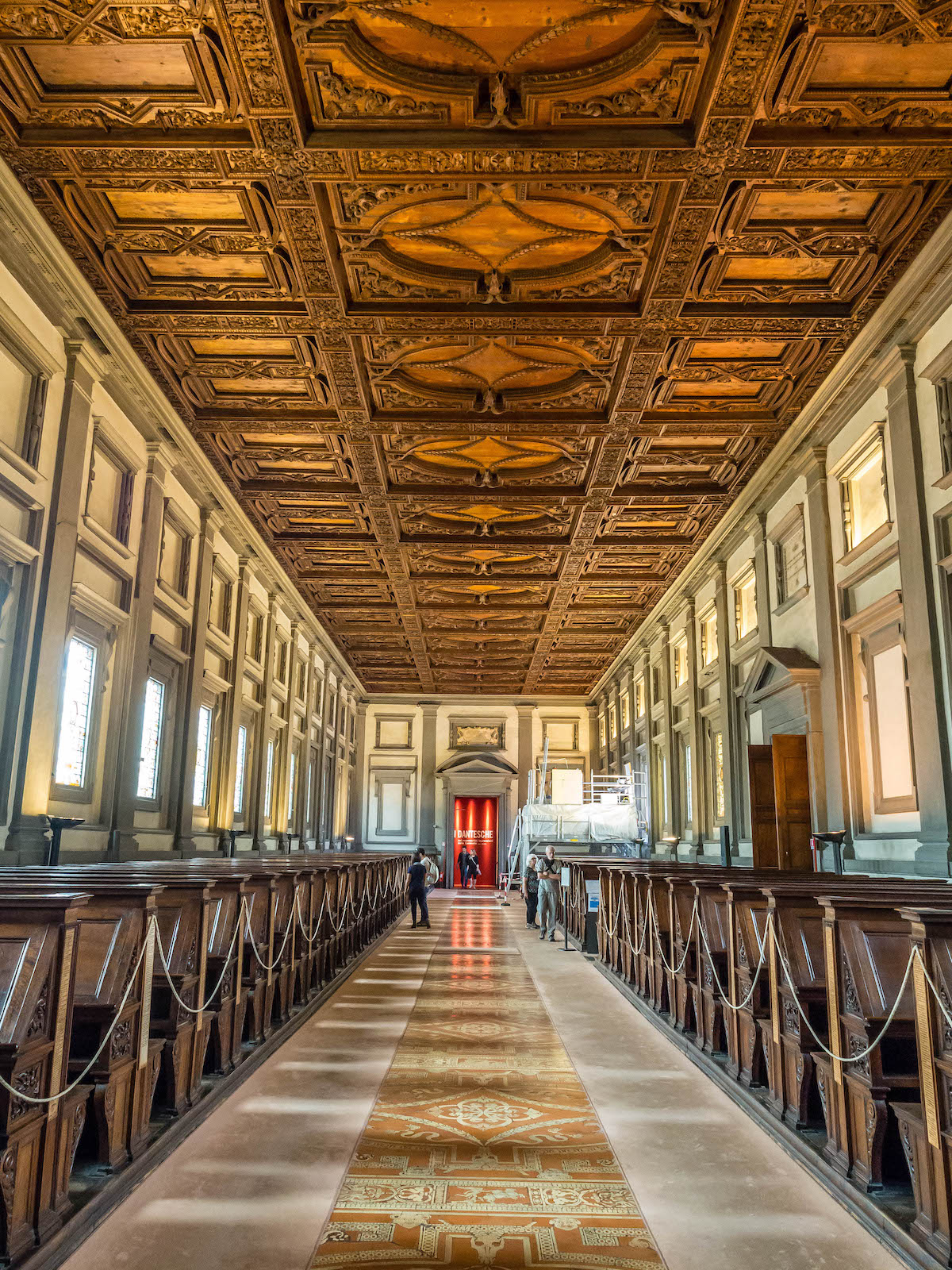
Climb inside the Duomo’s Dome
Assuming you don’t suffer from claustrophobia or acrophobia, a trip to the top of the Duomo’s iconic dome offers fantastic views. Not only will you get a bird’s-eye view of Florence’s red rooftops from the very top of the dome, you’ll get an architectural lesson or two on the way up.
The staircase to the top of the cathedral is actually between the two domes that made the lofty design possible. The passage is narrow and angled in places with steep stairs, so it’s not an activity for everyone, and if you’re intrigued you must book a special reserved ticket to make the trek.
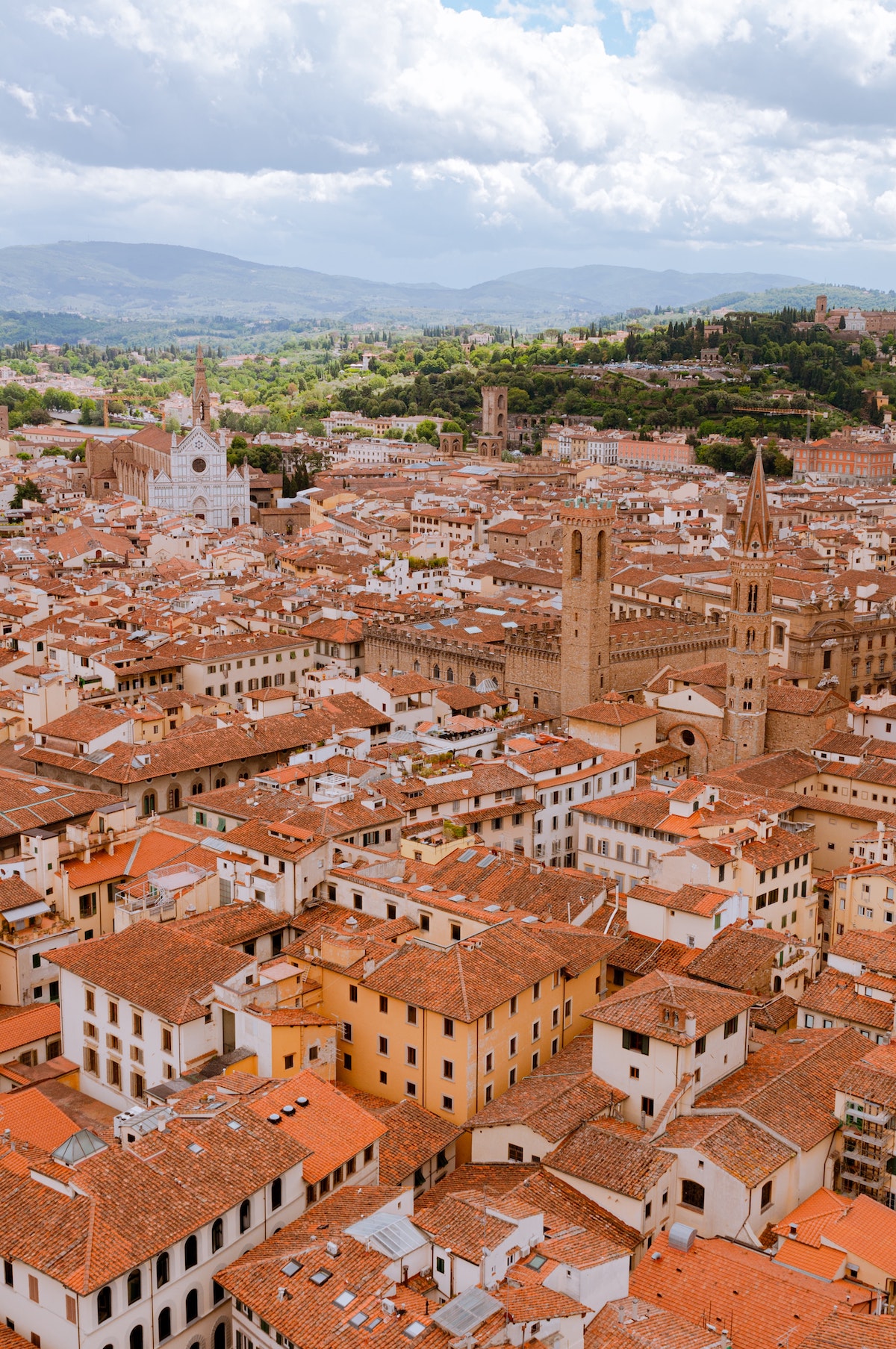
See the Duomo like never before
More hidden gems in Florence? Our Alone in the Duomo: VIP After-Hours Tour with Dome Climb & Private Terrace Access. Escape the crowds and discover Florence’s famous Duomo on an after-hours tour, climbing 463 steps to the dome top for magnificent views and close-up encounters with its artwork. Guided by an expert, delve into intriguing tales of Brunelleschi’s engineering and relish private terrace access. End with a special experience only few have: see the Key Master turn off the cathedral lights and take your group to lock up the church for the day.
Join us for this VIP experience that will be a highlight of your trip to Florence!
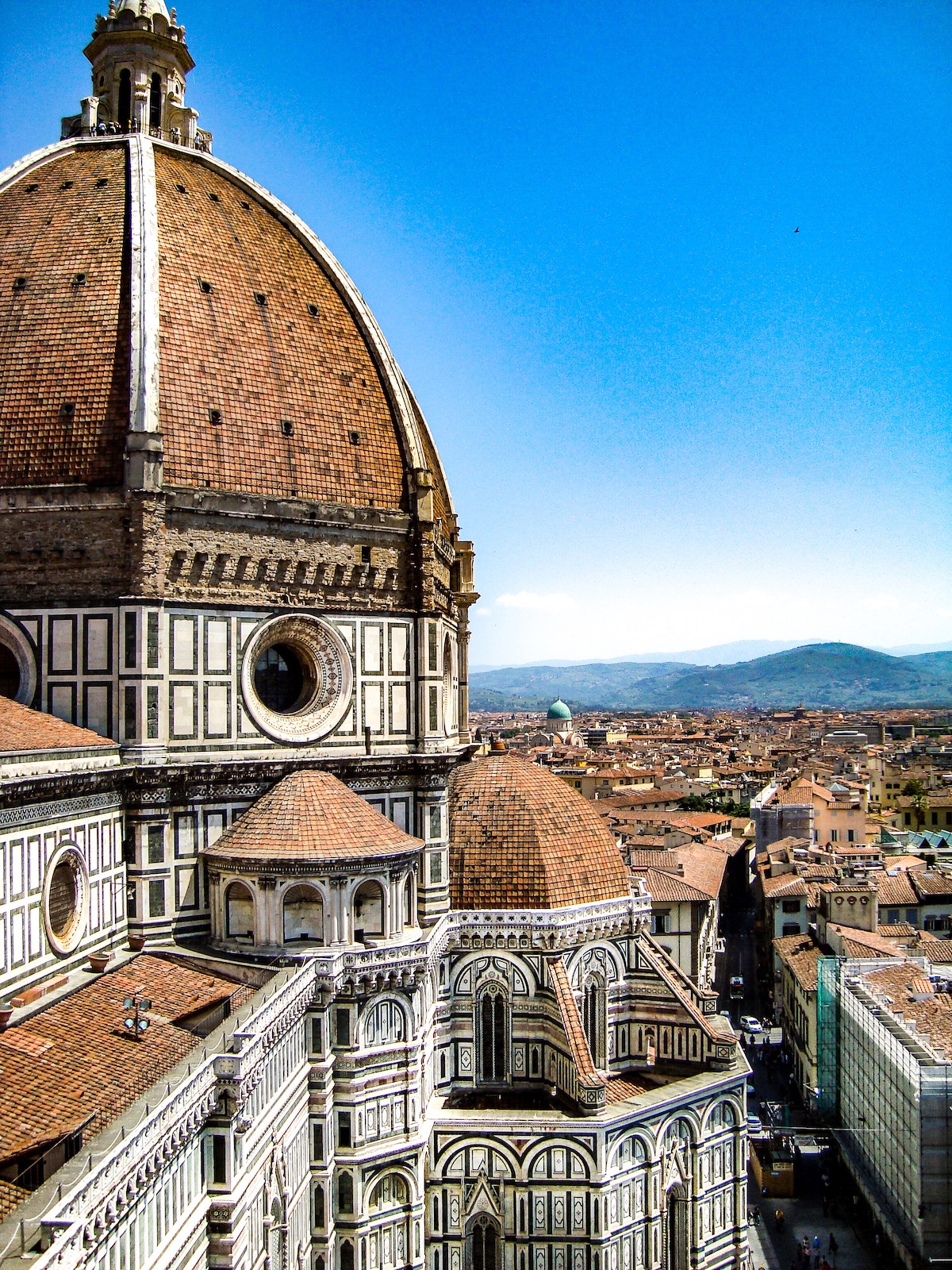
Keep an eye out for modern public Art
This Tuscan city may be best known for its Renaissance art, but there are several modern artists whose public works are all over. Street art has risen in stature in the past several decades, and Florence has its own set of well-known street artists.
Clet plays with the designs on street signs while Exit/Enter leaves sweet line drawings on buildings. The street art landscape changes regularly, but this is a relatively recent write-up of some of the street artists whose work you might see in Florence. The Oltrarno neighborhood is a great place to look for street art, particularly Via Toscanella near Piazza Pitti.
Get a midnight snack from a night bakery
There’s nothing quite like a freshly baked pastry, is there? In Florence, if you happen to be out late enough, you may be able to score one from a night bakery. They’re often called “secret,” but they’re not—they’re essentially wholesale bakeries that fill pastry cases in bars and markets around the city, so they aren’t open during regular business hours.
The goodies are coming out of the ovens in the wee hours (think 2–4 a.m.), and if you find a door that’s open to a busy kitchen that smells like baking, you’re in luck. The main rules are that you need to keep quiet (since it’s the middle of the night in what is usually a residential area), there isn’t a menu for you to choose from (you get what’s available), and you’ll need to pay in cash.
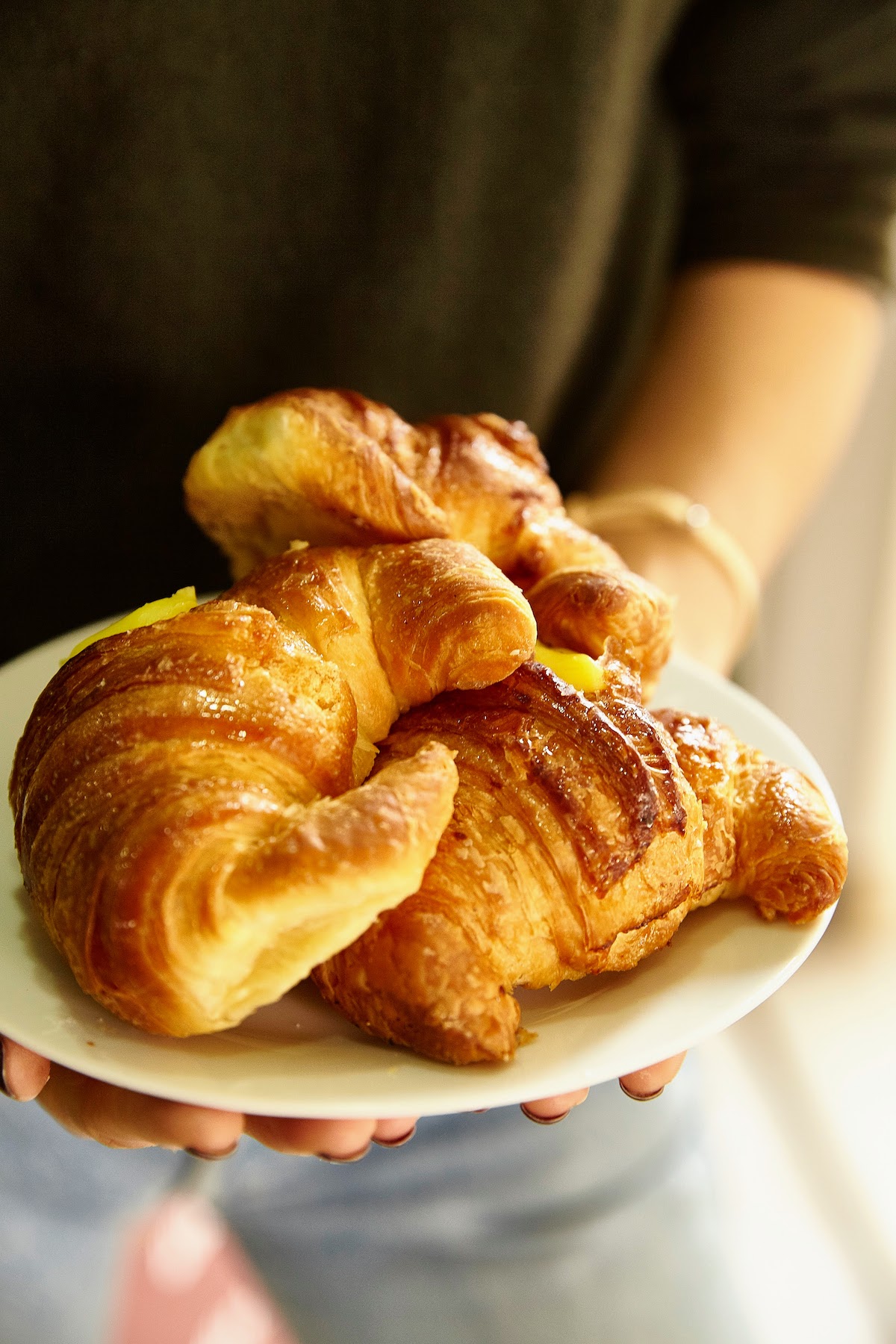
Linger in Piazza della Passera
Florence is not short on picturesque piazzas, most of which are excellent for people-watching, but if you’re looking for a smaller square with a slightly more local flavor, head across the river to the Piazza della Passera.
This sweet little (vaguely triangular) square is home to several eateries (including a good gelateria and two restaurants that come highly recommended if you’re looking for great pasta in Florence). Many of the surrounding streets have vacation apartments in the buildings, so you may be lucky enough to call this piazza home base for your stay in Florence.
Explore the Stibbert Museum
Whereas the renovated Duomo Museum is spacious and bright, the Stibbert Museum (Via Federico Stibbert, 26) feels a little bit like you walked into the expansive attic of an art collector. And, in a sense, you have.
The museum is in the former home of Frederick Stibbert, and when he died in 1906 the entire collection (gathered over the course of multiple generations) was bequeathed to the city of Florence. The massive collection includes ancient armor and weaponry from around the world along with some paintings, tapestries, and even some Etruscan artifacts.
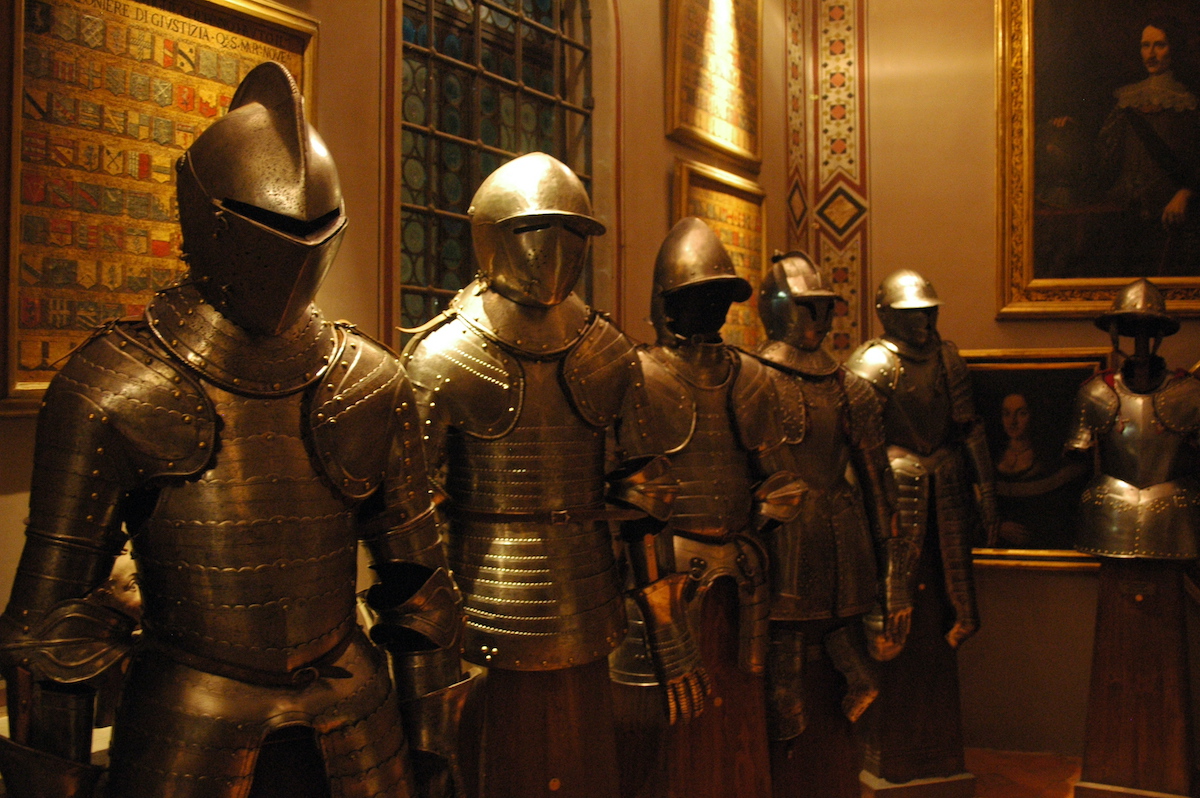
Visit the First Medici Home in Florence
Before the Palazzo Pitti and the Palazzo Vecchio, the Medici family lived in the Palazzo Medici (Via Camillo Cavour, 3). Today, it’s known as the Palazzo Medici Riccardi (the additional name is for the family who called it home after the Medici).
The palace, designed by Michelozzo, dates from the mid-15th century CE and was once both the residence for the family and also where they conducted their banking business. When the family began patronizing the arts, a young Michelangelo also lived in the palace for a time. The main attraction in the palace, though, is the Capella dei Magi—a private chapel for the Medici family, with beautiful frescoes by Gozzoli.
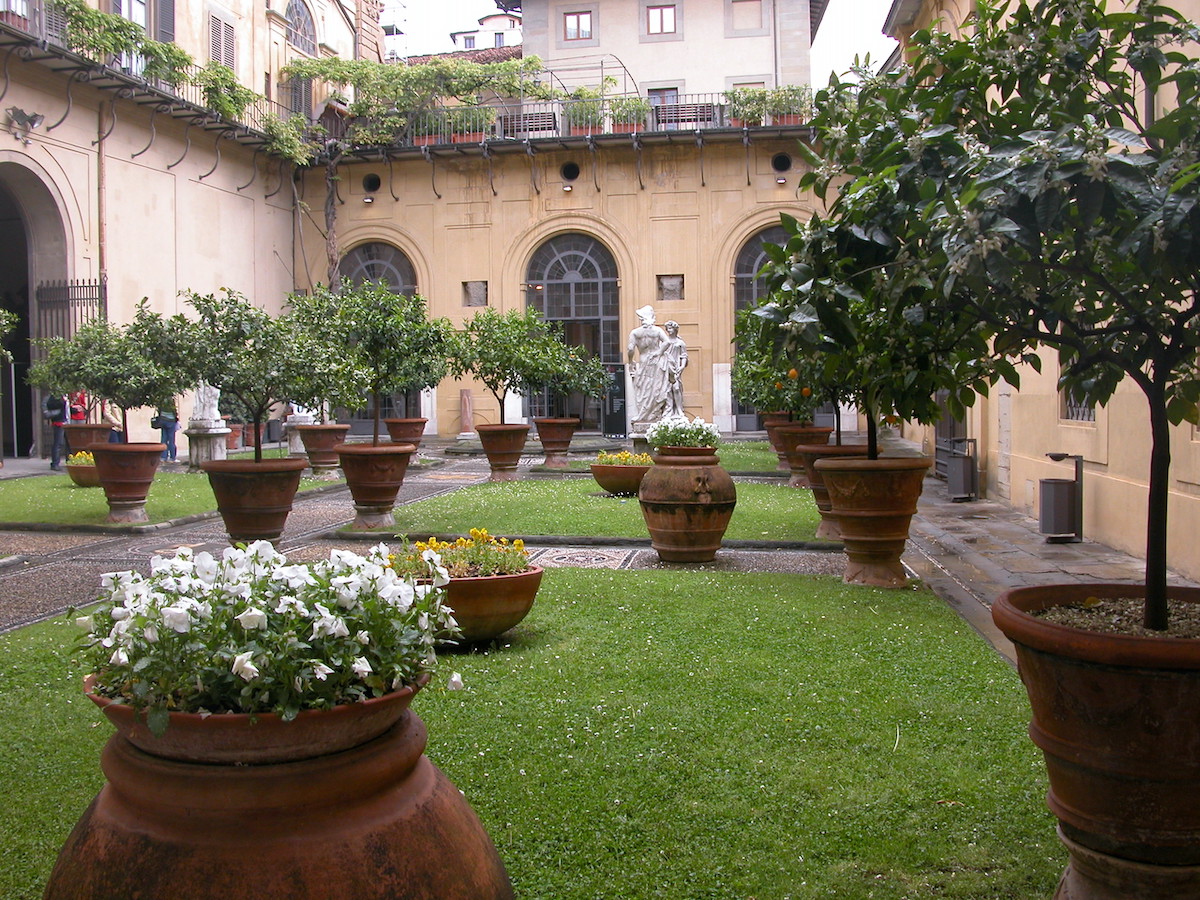
Wander through the Bardini Gardens
The huge Boboli Gardens behind the Palazzo Pitti are the most famous in Florence, but the nearby Bardini Gardens are also worth your time. Located behind the Boboli Gardens and connected to the Villa Bardini, the Bardini Gardens include three distinct areas covering about 10 acres in total.
Each section dates from a different time period—an Italianate Garden, an English Garden, and an Agricultural Park. Your ticket to the Boboli Gardens includes the Bardini Gardens, too.
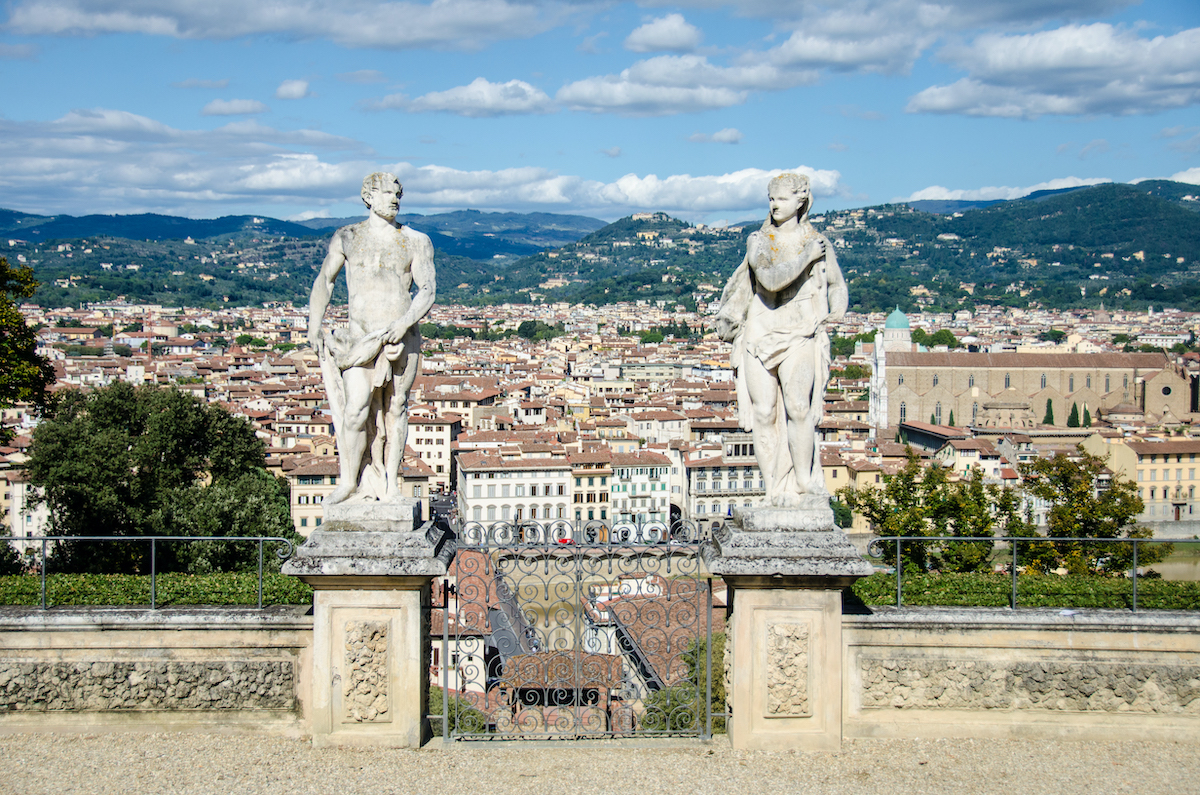
Once upon a time (read: the mid-1500s), the wine-producing families of Florence were granted permission to start selling wine right out of their palaces in the city center. Rather than build proper storefronts, however, they simply poked holes on the street level and served walk-up customers.
Today, you can still see some of the now-closed wine windows (buchette del vino) in buildings around the city—but some of them are even back in the wine business. A few have been serving wine (and even cocktails) for several years now, while others cleverly got going during the early part of the COVID pandemic. Seek out spots like Babae and Osteria delle Brache.
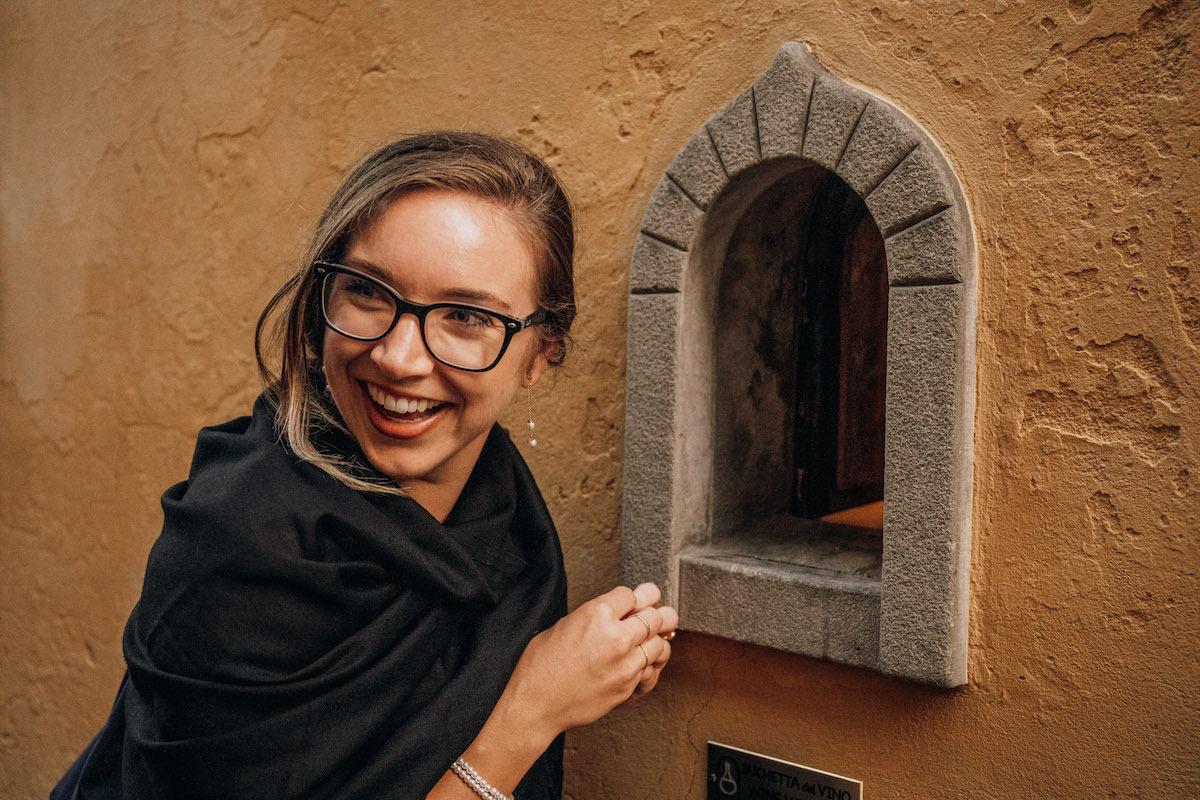
Want to upgrade your experience by exploring Florence alongside an expert guide? Join our Oltrarno at Sunset: Florence Food & Wine Tour to discover local secrets and sample more of the city’s best bites!






